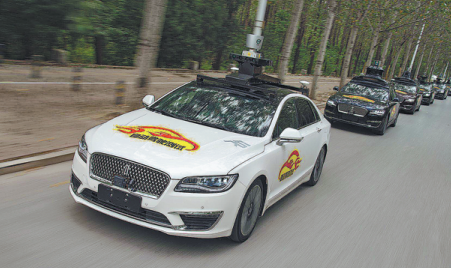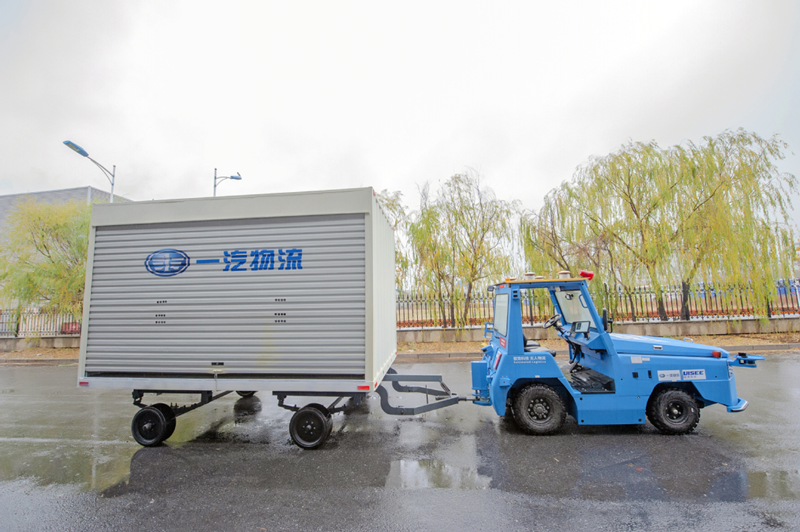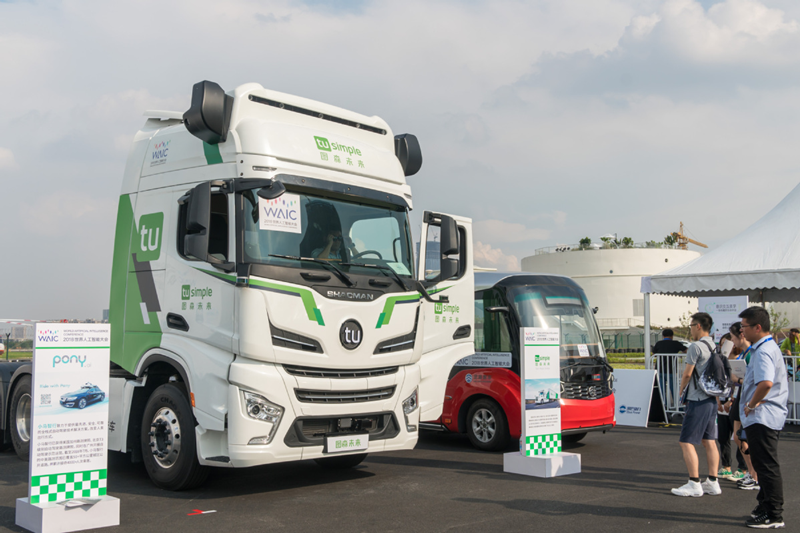Zhongguancun driverless cars on the road
2020 marks the closing year of the "13th Five-Year Plan" (2016-20).
During this period, Zhongguancun Science Park made breakthroughs in many core areas, and achieved great results, now it's home to many advanced autonomous driving vehicle companies. Here are some of them.
Baidu Apollo's autonomous driving service is the world's only travel service operated with Robotaxi and Robobus in multiple cities. It has carried more than 210,000 passengers and will be expanded to 30 cities over the next three years.

Tech company Baidu conducts road tests for its Apollo Go robotaxi at the test area in Zhongguancun Science City's autonomous driving demonstration zone. [Photo provided to China Daily]
Horizon Robotics sees cars defined entirely by software as the future. They firmly believe that with the evolution of automobile intelligence, cars will eventually become supercomputers on four wheels, with the on-board AI chip becoming their digital engine.
Its high-efficiency in-vehicle AI chip Journey 3 uses 16-nanometer technology based on the company's independently developed BPU2.0 architecture. Its AI computing power reaches 5 TOPS, with typical power consumption limited to 2.5W.

An unmanned logistics vehicle of UISEE [Photo provided to chinadaily.com.cn]
The Hong Kong International Airport, which has a daily cargo volume of tens of thousands of tons, has a group of special logistics vehicles on duty.
They do not require drivers or safety officers and can transport passenger luggage and various goods around the clock.
Uisee Technology's unmanned driving technology platform consists of three parts: a full-featured vehicle-level intelligent driving controller, an automatic driving algorithm, and a cloud operation management platform.
It has drawn an invisible "enchantment" for each unmanned vehicle — an electronic fence control system. Once a vehicle's main system goes out of control, deviates from the track, or even affects other areas of operation, the system will force the vehicle to brake in time to ensure the safety of both the vehicle and the operating environment.

TuSimple showcases its self-driving truck at an exhibition in Shanghai. [Photo provided to China Daily/Wang Gang]
In July 2020, Tusimple launched the world's first unmanned freight network in the United States. The transportation network consists of unmanned trucks, logistics hubs and operation monitoring systems.
The company adopted an operation monitoring system in the network to ensure the safe transportation of goods and allow customers to track the status of goods in real time. Its driverless technology can maintain 24-hour operation, saving over 10 percent in truck fuel consumption.
Tusimple has already conducted unmanned transportation services on seven different routes between Phoenix, Tucson, El Paso and Dallas in the United States.
The Zhongguancun enterprise Pony.ai has been providing hardware solutions and software solutions for autonomous driving technology.
To date, Pony.ai has established large-scale autonomous driving fleets in Shanghai, Beijing, Guangzhou, Fremont, and Irvine, China and the United States.
It has established autonomous driving R&D and operation centers in Beijing, Guangzhou, Silicon Valley and California, launching autonomous driving travel and distribution services.
Its test mileage of autonomous driving on open roads in urban areas worldwide has exceeded 3 million kilometers. In addition, it has reached in-depth cooperation with Toyota, Guangzhou Automobile, Hyundai and other car companies.
Smarter Eye, a high-tech company established in Zhongguancun in October 2014, has been focusing on research into the technology of binocular stereo vision.
The distance measurement range of its Binocular Stereo Camera has been increased to 120 meters with a guaranteed error range of less than 3 percent, which is comparable to lidar. Smarter Eye's point cloud density, however, is much higher than that of lidar.
